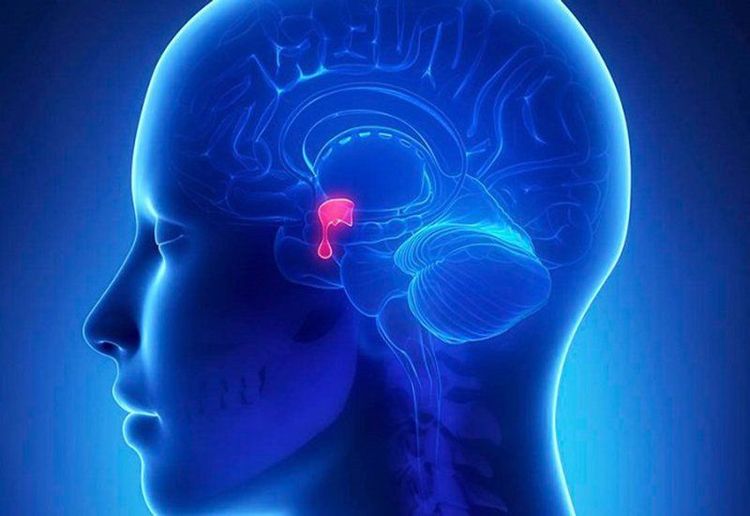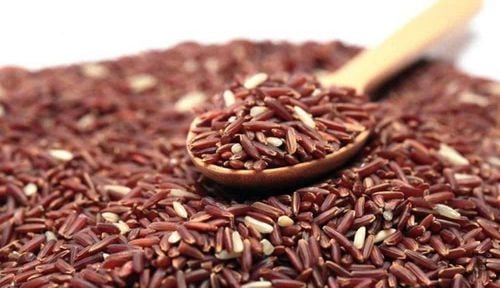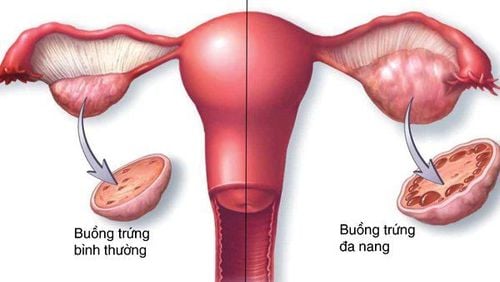This is an automatically translated article.
The article was professionally consulted by Specialist Doctor I Le Thi Phuong - Obstetrician and Gynecologist - Department of Obstetrics and Gynecology - Vinmec Ha Long International HospitalInfertility occurs when a couple tries to get pregnant for at least a year without success. Female infertility accounts for about 1 in 3 cases, and female infertility causes can be more difficult to diagnose than male infertility.
1. Signs of female infertility
In women, changes in the menstrual cycle and ovulation can be a symptom of female infertility that manifests through a number of medical conditions. Symptoms include:Irregular periods: Bleeding that is heavier or lighter than usual Irregular periods: The number of days in each period varies per month Loss of periods: You have never had a period , or periods suddenly stop Menstrual pain: Back pain, pelvic pain, and cramping may occur. Sometimes, female infertility is related to hormone problems. In this case, symptoms may also include:
Changes in the skin such as lots of acne Changes in libido and decreased sex drive Hair growth on the lips, breasts and chin Hair loss or thinning Weight gain Other disorder symptoms that could be signs of female infertility include:
Milky discharge from nipples but not breast milk Pain during sex

2. Risk factors for female infertility
A number of factors can put you at a higher risk of infertility, including:
Age: The quality and quantity of a woman's eggs start to decrease with age. By the age of 30, the rate of follicle loss increases, resulting in fewer and poor quality eggs. This makes conceiving more difficult and increases the risk of miscarriage. Smoking: Besides damaging your cervix and fallopian tubes, smoking increases your risk of miscarriage and ectopic pregnancy. It is also thought to age the ovaries and deplete your eggs sooner. Therefore, you need to stop smoking before starting fertility treatment. Weight: Being overweight or underweight can affect normal ovulation. A healthy body mass index (BMI) can increase the frequency of ovulation and the likelihood of pregnancy. Sexual history: Sexually transmitted infections such as chlamydia and gonorrhea can damage the fallopian tubes. Having unprotected sex with multiple partners increases the risk of contracting STIs and can cause fertility problems later in life. Alcohol: Women should consume alcohol in moderation, no more than one drink per day.
3. Causes of female infertility
In women, a number of factors can disrupt any stage of egg production, ovulation, and fertilization.3.1 Ovulation disorders Ovulation disorders, which means you ovulate infrequently or at all, account for infertility in about 1 in 4 infertile couples. Problems with the regulation of reproductive hormones in the hypothalamus or pituitary gland, or problems in the ovaries, can cause ovulation disorders.

Polycystic ovary syndrome (PCOS): PCOS causes hormone imbalance, affecting ovulation process. PCOS is linked to insulin resistance and obesity, abnormal hair growth on the face or body, and acne. This is the most common cause of female infertility. Hypothalamic dysfunction: Two hormones produced by the pituitary gland are responsible for stimulating ovulation each month: follicle-stimulating hormone (FSH) and luteinizing hormone (LH). Excessive physical or mental stress, being overweight or too thin, or rapid weight gain or loss can disrupt the production of these two hormones and affect ovulation. Irregular periods or missed periods are the most common signs of this disorder. Premature ovarian failure: Also known as primary ovarian failure, this disorder is often caused by an autoimmune reaction or by loss of immature eggs due to genetics or chemotherapy. The ovaries no longer produce eggs and decrease in estrogen production in women under the age of 40. Too much prolactin: The pituitary gland can cause overproduction of prolactin (hyperprolactinemia), which reduces estrogen production and possibly infertility. It is often related to a problem with the pituitary gland or to the medications the person is taking to treat another condition.

3.2 Damage to Fallopian tubes Damaged or blocked fallopian tubes prevent sperm from reaching an egg or blocking the passage of an embryo into the uterus. Causes of fallopian tube damage or blockage can include:
Pelvic inflammatory disease, an infection of the uterus and fallopian tubes caused by chlamydia, gonorrhea, or other sexually transmitted infections Previous surgery on the cyst abdomen or pelvis such as surgery for ectopic pregnancy. Pelvic Tuberculosis 3.3 Endometriosis Endometriosis occurs when tissue that normally grows in the uterus grows in other sites. This extra tissue growth and surgical removal of it can cause scarring, which will block the fallopian tubes and prevent the egg and sperm from meeting for fertilization.
Endometriosis can also affect the lining of the uterus, disrupting embryo implantation.
3.4 Uterine or Cervical Causes Several uterine or cervical causes can affect fertility by interfering with implantation or increasing the chance of miscarriage:
Polyps Benign or tumorous (fibroids or cancerous) are common conditions in the uterus. Some diseases can block the fallopian tubes or interfere with embryo implantation, affecting fertility. Congenital abnormalities of the uterus, such as an irregularly shaped uterus, can cause problems with conception and pregnancy. Cervical stenosis can be caused by genetic defects or damage to the cervix. Sometimes the cervix is not able to produce good mucus to facilitate the passage of sperm through the cervix into the uterus for fertilization.

3.5 Unexplained Infertility Sometimes, the cause of infertility is never found. It is possible that a combination of several minor factors in both partners causes fertility problems that doctors cannot explain. Customers can come to the Center for Reproductive Support - Vinmec International General Hospital. This is the leading center in Vietnam, which has developed and applied a comprehensive medical examination and treatment process, combining both gynecology and obstetrics and gynecology to provide the optimal method for each patient's case.
Advantages when customers choose Vinmec fertility center:
Equipped with modern equipment, clean air system according to international standards to ensure lab quality, single cabinet system to optimize quality embryo, improving the success rate for each cycle of artificial insemination. Implement most advanced assisted reproductive techniques in the world: ICSI (injection of sperm into the oocyte cytoplasm); support embryo escape membrane; Reproductive reserve: embryo freezing, sperm freezing, oocyte freezing to help customers take the initiative in giving birth at will, transferring embryos on day 5, minimizing pregnancy; male infertility techniques (PESA, MESA, TEFNA, TESE) Besides advanced reproductive support methods, a team of excellent doctors in the country and the world, with prestige and long-term experience in the field of infertility .
Please dial HOTLINE for more information or register for an appointment HERE. Download MyVinmec app to make appointments faster and to manage your bookings easily.
References: healthline.com, mayoclinic.org, webmd.com














